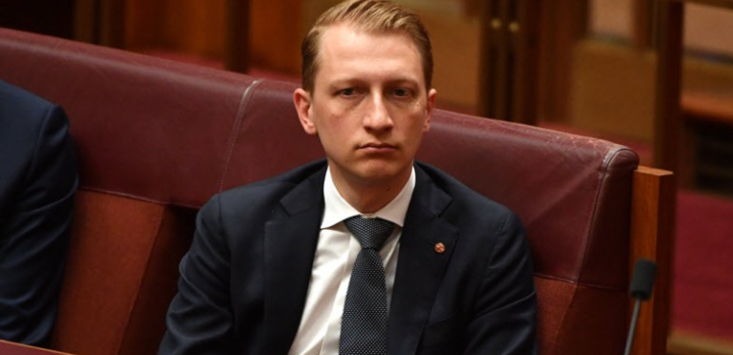
Liberal senator James Paterson.
A Liberal senator has continued to pressure Chinese-owned tech companies operating in Australia by urging the information watchdog to investigate ridesharing app DiDi.
Late last week, the opposition spokesman on cyber security and countering foreign interference James Paterson wrote to the information commissioner asking for the Australian arm of the company, DiDi Australia, to be investigated. He posted the letter to Twitter today.
“Australians deserve to know exactly how their sensitive private information is being handled by this company and only complete transparency about their data-handling processes will reassure Australians about their privacy and cyber security,” he wrote.
As a result I have referred them for investigation to the Information and Privacy Commissioner given the serious privacy and cybersecurity issues identified in its home jurisdiction of China pic.twitter.com/ODauBHhXd2
— James Paterson (@SenPaterson) September 4, 2022
This comes after Paterson asked DiDi to make assurances about its privacy protections, including asking whether data on Australian users is stored or can be accessed from China.
Paterson’s letter cited a US$1.2 billion fine for breaching privacy laws, and the company’s privacy policy which states that user data can be transferred to other bodies in the DiDi group.
In response, DiDi Australia’s head of government affairs and safety Maria Silos said it complied with Australia’s laws and privacy principles. She also said data is stored and accessed outside China — but did not rule it out happening in the future.
There are fears that this means it could be accessed by the Chinese government because of a Chinese national intelligence law that compels any citizen or business to comply with requests.
Paterson’s efforts are part of a broader campaign calling on the Albanese government to do more to protect Australians from foreign interference. Before this, he had used the same playbook against ByteDance, the Chinese parent company of the mega-popular short video platform TikTok.
On Sunday, Home Affairs Minister Clare O’Neil said she had sought a briefing on options to deal with TikTok and other applications collecting data on Australians.
“It’s not just about TikTok,” she told the SMH. “We’ve got this basic problem here where we’ve got technology companies that are based in countries with a more authoritarian approach to the private sector, and this is a relatively new problem.”
O’Neil, whose TikTok account disappeared without explanation after the election, did rule out banning TikTok, however.
This article was first published by Crikey.
Handpicked for you

Google AI spots 20,000 undeclared pools in $14 million tax windfall for French government



COMMENTS
SmartCompany is committed to hosting lively discussions. Help us keep the conversation useful, interesting and welcoming. We aim to publish comments quickly in the interest of promoting robust conversation, but we’re a small team and we deploy filters to protect against legal risk. Occasionally your comment may be held up while it is being reviewed, but we’re working as fast as we can to keep the conversation rolling.
The SmartCompany comment section is members-only content. Please subscribe to leave a comment.
The SmartCompany comment section is members-only content. Please login to leave a comment.